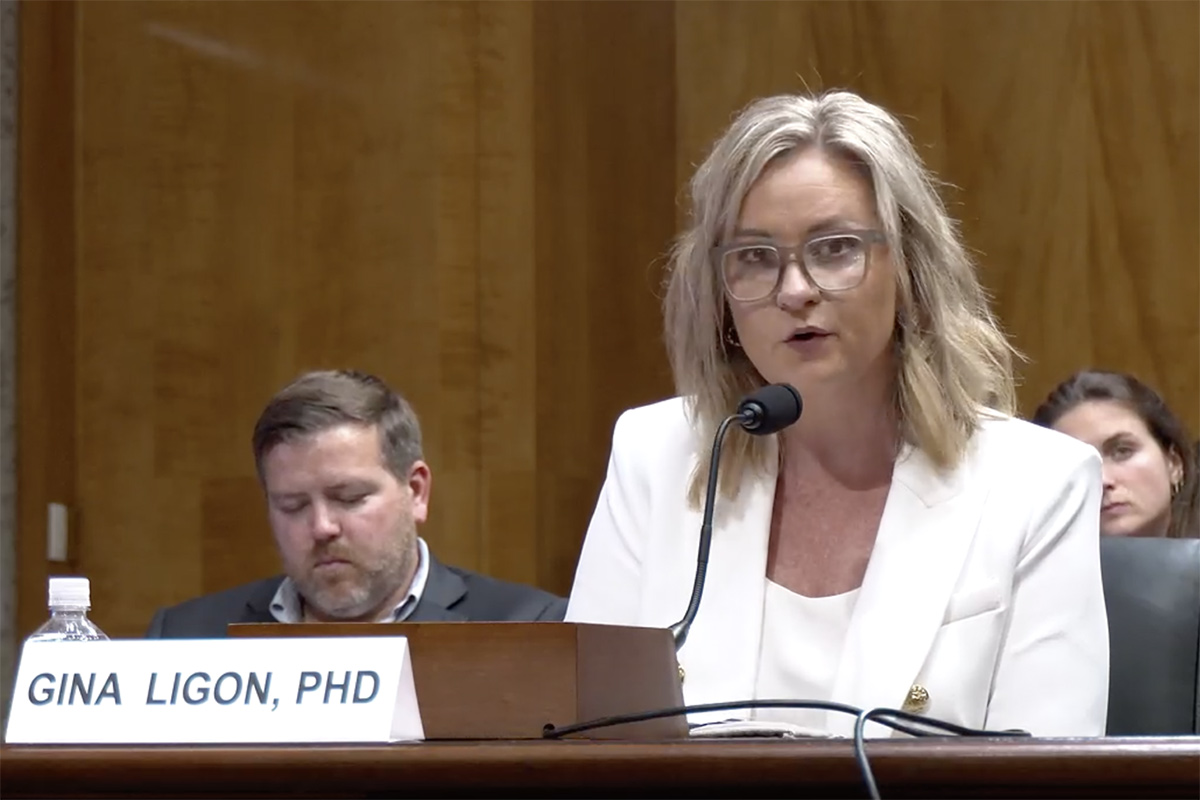UNO NCITE’s Gina Ligon Warns Senate of Evolving Terrorist Threats to 2026 World Cup, 2028 Olympics
The scope and sophistication of potential terrorist attacks are increasing as the U.S. prepares to host the two global sporting events.
- published: 2025/06/13
- contact: Sam Peshek - Office of Strategic Marketing and Communications
- email: unonews@unomaha.edu

If terrorists set their sights on the 2026 FIFA World Cup and the 2028 Los Angeles Olympics, they won’t just bring bombs and bullets. They’ll bring tech.
Gina Ligon, Ph.D., director of the National Counterterrorism Innovation, Technology, and Education Center (NCITE) at the University of Nebraska at Omaha (UNO), urged members of the U.S. Senate to plan accordingly.
➡️ What’s new:
-
Ligon testified before the U.S. Senate Subcommittee on Border Management, Federal Workforce and Regulatory Affairs during a June 10 hearing titled “Match Ready: Oversight of the Federal Government’s Border Management and Personnel Readiness Efforts for the Decade of Sports.”
-
Her testimony focused on national security threats tied to the two high-profile international sporting events expected to draw massive crowds and attention from violent extremists.
🎙️ More from the hearing:
💡 Why it matters:
-
The scope and sophistication of potential terrorist attacks are increasing as the U.S. prepares to host the two global sporting events.
-
Ligon emphasized how technology such as AI-enabled surveillance glasses and commercial drones has become central to terrorist planning and execution.
-
The January 2025 attack on Bourbon Street in New Orleans, she noted, foreshadowed the use of emerging tools by ideologically motivated individuals to exploit public events for mass harm.
🎤 What they’re saying: Notable remarks from Ligon’s testimony include:
-
“I urge you to not only examine the conventional ways that terrorists have attacked global sporting events, but also how technology might change their tactics.”
-
“At the University of Nebraska at Omaha, our NCITE center is working to illuminate how terrorists interact with artificial intelligence to increase the lethality.”
-
“That attack [in New Orleans] represents so much of what I detailed today: a known terrorism threat inspiring an American to use tactics both old and new to attack a crowded, public space for all the world to see.”
🔎 Zoom in: Ligon shared three conclusions with subcommittee members about the nature of looming national security threats:
-
New tools, old tactics: Terrorists are expected to enhance traditional attack methods like IEDs and vehicle rammings, using commercial technologies such as drones and AI-enabled devices.
-
Expanding threat landscape: Extremist actors now include jihadist groups, state-sponsored networks, violent cartels, lone offenders with personal grievances, and nihilistic online communities.
-
DHS must stay ahead: While the Department of Homeland Security is positioned to lead national event security, Ligon emphasized the need for sustained investment in DHS research, workforce, and intelligence capabilities to outpace a fast-evolving threat.
🎯 The big picture: NCITE and UNO are helping make the U.S. safer by uncovering how terrorists adapt everyday tech in dangerous ways, a concept it calls malevolent innovation. Current research includes:
-
IED innovation tracking: NCITE is studying disrupted bomb plots to understand how construction and delivery methods are evolving. One plot targeted a 2011 MLK Day parade using shrapnel laced with rat poison to increase lethality.
-
Drone threat analysis: NCITE is examining how extremists use drones for surveillance and planning. In a recent case, a Michigan man inspired by ISIS used a commercial drone to map buildings at a military base ahead of a planned attack.
About the University of Nebraska at Omaha
Located in one of America’s best cities to live, work and learn, the University of Nebraska at Omaha (UNO) is Nebraska’s premier metropolitan university. With more than 15,000 students enrolled in 200-plus programs of study, UNO is recognized nationally for its online education, graduate education, military friendliness and community engagement efforts. Founded in 1908, UNO has served learners of all backgrounds for more than 100 years and is dedicated to another century of excellence both in the classroom and in the community.
Follow UNO on Facebook, Twitter (X), Instagram, LinkedIn, and YouTube.